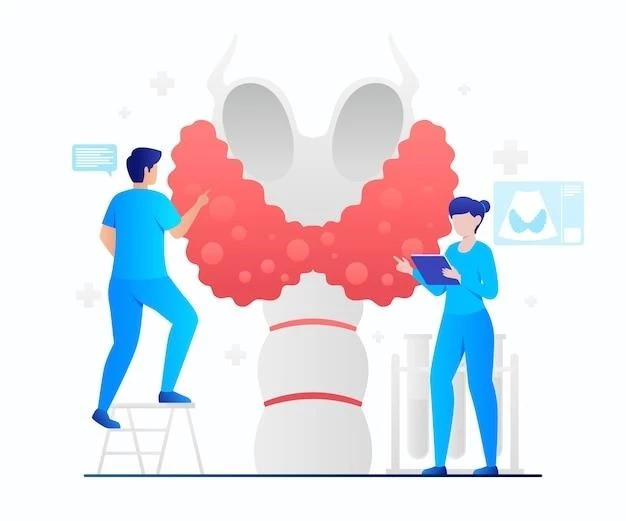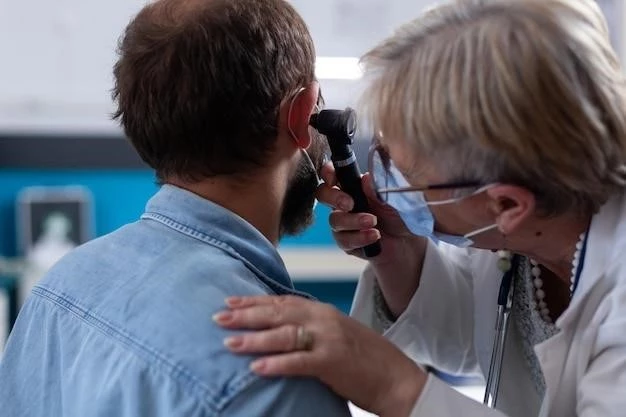I. Overview of Esophageal Disorder
Esophageal disorder involves issues within the gastrointestinal tract, particularly affecting the esophagus, leading to various symptoms and complications.
A. Introduction to Esophageal Disorder
An esophageal disorder refers to medical conditions that affect the esophagus, the tube connecting the throat to the stomach. It involves issues such as inflammation, reflux, difficulty swallowing, and discomfort. Understanding the specifics of esophageal disorders is essential for accurate diagnosis, effective treatment, and proper management to prevent complications. These disorders can significantly impact an individual’s health and quality of life, requiring medical attention and appropriate lifestyle modifications.
B. Definition and Specifics of the Disease
Esophageal disorders encompass a spectrum of conditions that affect the esophagus, a crucial part of the gastrointestinal tract responsible for transporting food and liquids to the stomach. These disorders can lead to various symptoms such as acidity, reflux, difficulty swallowing, and inflammation. The specifics of each esophageal disorder can vary, with causes ranging from lifestyle factors to underlying medical issues. Understanding the intricate details of these diseases is paramount for accurate diagnosis, effective treatment, and proper management of symptoms and complications.
II. Symptoms and Diagnosis
Recognizing symptoms such as swallowing discomfort and acidity is crucial for the accurate diagnosis of esophageal disorders using various diagnostic procedures.
A. Common Symptoms of Esophageal Disorder
The common symptoms of esophageal disorders include acidity, reflux, swallowing difficulties, chest pain, and throat discomfort. Patients may experience persistent coughing, regurgitation, or a sensation of something stuck in the throat. Unintentional weight loss and hoarseness can also occur. Recognizing these symptoms is vital for early detection and prompt medical intervention to prevent complications.
B. Diagnostic Procedures for Identifying Esophageal Disorder
Diagnosing esophageal disorders involves various diagnostic procedures, including endoscopy, barium swallow X-rays, esophageal manometry, pH monitoring, and biopsy. These tests help identify the underlying cause of symptoms such as inflammation, reflux, and swallowing difficulties. Through these diagnostic approaches, healthcare providers can accurately assess the condition of the esophagus and determine the most appropriate treatment plan to manage the disorder effectively.
III. Risk Factors and Complications
Understanding the risk factors associated with esophageal disorders and potential complications is essential for comprehensive management and prevention.
A. Factors Increasing the Risk of Esophageal Disorder
Several factors can increase the risk of esophageal disorders, including obesity, smoking, excessive alcohol consumption, a high-fat diet, and persistent gastroesophageal reflux disease (GERD). Additionally, chronic inflammation, certain medications, and anatomical abnormalities may contribute to the development of these disorders. Understanding and addressing these risk factors are crucial in preventing the onset or progression of esophageal conditions.
B. Potential Complications Associated with the Disease
Esophageal disorders can lead to various complications, such as Barrett’s esophagus, esophageal strictures, ulcers, aspiration pneumonia, and esophageal cancer. Long-standing inflammation, untreated reflux, and structural changes in the esophagus can increase the risk of these complications. Prompt diagnosis, appropriate treatment, and regular monitoring are essential to prevent potential adverse outcomes and provide optimal care for individuals with esophageal disorders.

IV. Treatment and Therapy
Effective medical treatments and therapeutic approaches play a crucial role in managing esophageal disorders and their associated symptoms.
A. Medical Treatment Options for Esophageal Disorder
Medical treatment options for esophageal disorders may include medications to reduce acidity, manage reflux symptoms, and control inflammation. Proton pump inhibitors, antacids, and prokinetic agents are commonly prescribed to alleviate discomfort and improve esophageal function. In some cases, corticosteroids or antibiotics may be necessary to address underlying conditions contributing to the disorder. Collaborating with healthcare providers is essential to determine the most suitable medical intervention based on the specific needs of each patient.
B. Therapeutic Approaches for Managing the Disease
Therapeutic approaches for managing esophageal disorders may involve lifestyle modifications, dietary changes, and behavioral interventions. Endoscopic procedures, such as dilation for strictures or ablation for Barrett’s esophagus, can help improve esophageal function. Patients may benefit from speech therapy or swallowing exercises to address swallowing difficulties. Complementary therapies, such as acupuncture or relaxation techniques, can also support overall well-being and symptom management. A multidisciplinary approach tailored to individual needs is essential for comprehensive disease management.
V. Prevention and Lifestyle Management
Implementing preventive strategies and lifestyle modifications are key components in managing esophageal disorders and promoting overall health.
A. Strategies for Preventing Esophageal Disorder
Preventing esophageal disorders involves maintaining a healthy weight, avoiding tobacco and excessive alcohol consumption, eating a balanced diet rich in fruits and vegetables, and practicing good oral hygiene. Managing underlying conditions like GERD and implementing stress-reducing techniques can also help prevent the development of esophageal disorders. Regular exercise, staying hydrated, and adhering to medical recommendations are essential preventive measures to safeguard esophageal health and overall well-being.
B. Lifestyle Modifications for Individuals with Esophageal Disorder
Individuals with esophageal disorders can benefit from lifestyle modifications such as avoiding trigger foods, eating smaller meals, maintaining an upright position after eating, and quitting smoking. Dietary changes, including reducing spicy and acidic foods, can help alleviate symptoms. Elevating the head of the bed during sleep, managing stress levels, and practicing relaxation techniques are essential lifestyle modifications to minimize discomfort and enhance the management of esophageal disorders.
